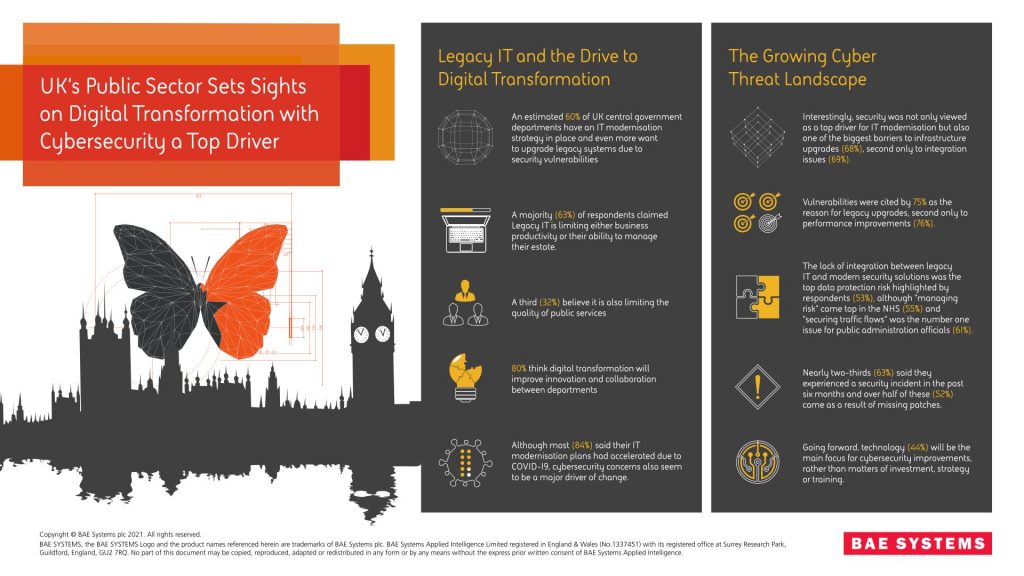Digital transformation pushed to the top of the priority list for central Government
An estimated 60% of UK central government departments have an IT modernisation strategy in place and even more want to upgrade legacy systems due to security vulnerabilities, according to a new study from BAE Systems Applied Intelligence.
The recent research polled 250 IT managers in UK central governmental organisations to better understand their approach to cybersecurity. It found 75% were upgrading systems because of concerns about the vulnerability of legacy IT.
Public sector IT leaders are right to be concerned. Nearly two-thirds (63%) said they experienced a security incident in the past six months and over half of these (52%) came as a result of missing patches.
The lack of integration between legacy IT and modern security solutions was the top data protection risk highlighted by respondents (53%), although “managing risk” came top in the NHS (55%) and “securing traffic flows” was the number one issue for public administration officials (61%).
“One of the challenges is that security and IT departments too often work in siloes, with the former seen as the “department of no” which is slowing down the pace of digital transformation”, said Lorna Rea, Consultant for Central Government at BAE Systems. “In order for security not to be seen as a blocker to innovation, a balance must be struck to ensure public sector employees have the tools they need to collaborate and innovate, without driving up cyber risk to unmanageable levels.”
Public sector IT leaders want to start improvements by simplifying security architecture (45%), either by investing in new technologies and/or vendor consolidation. Similar numbers (45%) want to review current cyber risk management strategies to ensure they have the right balance between security and productivity.
Stay up to date and get our latest Government Insights by subscribing at www.baesystems.com/governmentinsights







Recent Comments